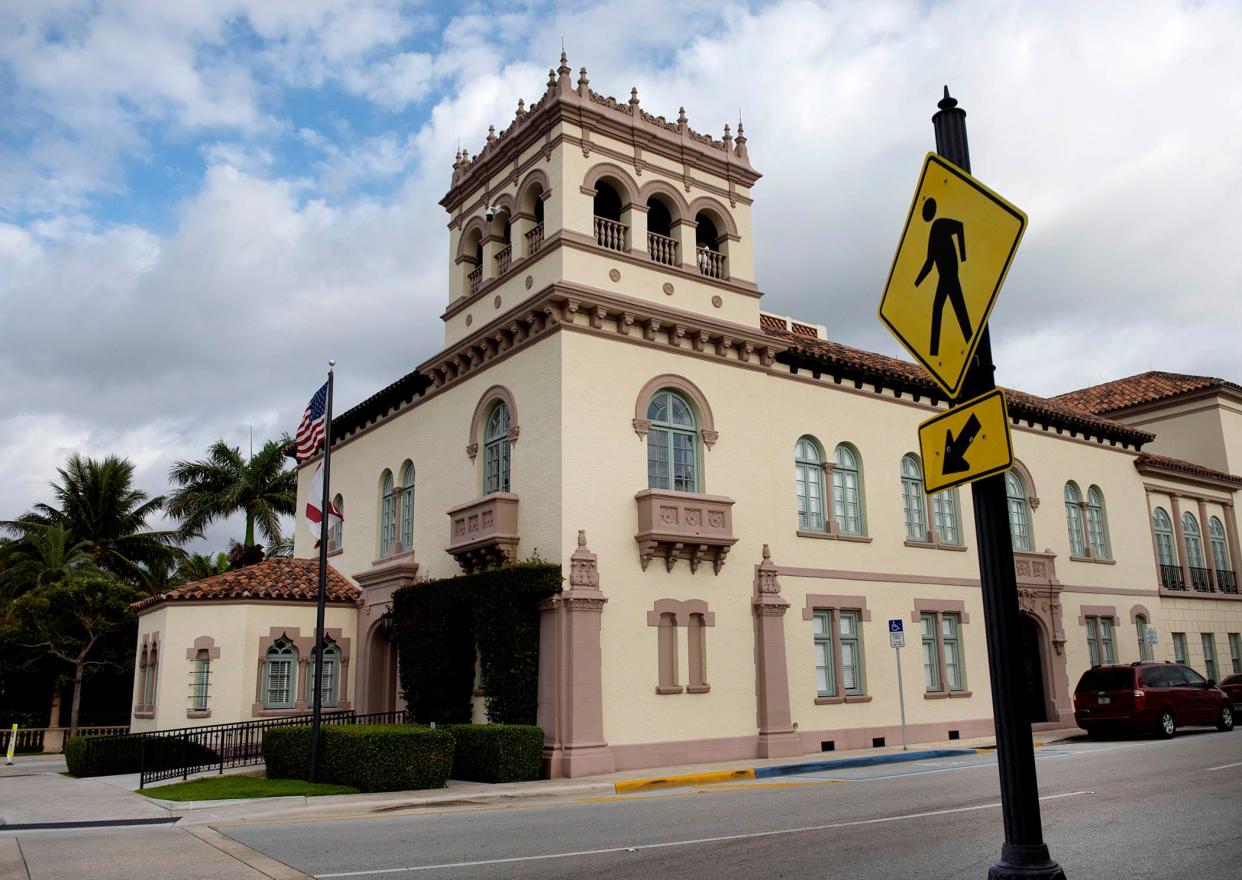Palm Beach exempt from law stripping protections for landmarked commercial buildings

Good news from the Florida legislative session, said the lobbyist for the town, Mathew Forrest, as he told Tuesday's Town Council meeting that Palm Beach was among the municipalities exempted from a bill that strips the demolition protections for landmarked commercial buildings.
Senate Bill 1526/ House Bill 1647 bars local governments from preventing the demolition of a coastal commercial building if it falls below the Federal Emergency Management Agency's base flood elevation requirements, is deemed unsafe by local officials or if the building stands beyond the state's current coastal construction boundary line.
Commercial buildings are exempted if they are registered with the National Park Service's National Register of Historic Places. However, Council Member Ted Cooney noted that the registration does not shield registered buildings from local demolition efforts
Exemptions to a new state law, which Gov. Ron DeSantis' signed March 22, are granted to coastal commercial buildings situated in a barrier island with a municipality smaller than 10,000, with at least six city blocks that are not within high-risk flood zones.
Besides Palm Beach, municipalities with exemptions include St. Augustine, Key West, Panama City and Pensacola.
While Palm Beach was exempted this time, Forrest said the 2025 legislation session likely will see more bills aiming to limit the protections afforded to buildings by municipal ordinances, such as Palm Beach's Historic Preservation Ordinance.
“However, I also would stress that this is going to be something we will have to continue to fight,” said Forrest, who is a partner in the Ballard Partners lobbying firm. "The issues regarding historic preservation I think are going to continue in Tallahassee.”
Cooney welcomed the town's exemption but expressed concern with the Legislature's recent trend of limiting local historic preservation. He noted the negative impact of 2022's House Bill 423, which allows homeowners to demolish their landmarked homes if the designation was made after Jan. 1, 2022, and they do not agree with the designation.
Cooney also noted that the town has rarely registered with the National Register of Historic Places because of the expense and the lack of demolition protection.
“Do you see that we should prioritize that going forward?” Cooney asked, regarding bills targeting local historic preservation.
Forrest said while he is not an expert, he has been seeing the National Register of Historic Places exception written into multiple proposed bills targeting local historic preservation. The issue, he noted, is that legislators create bills with one municipality or county in mind, without considering the repercussions the new laws may have on other local jurisdictions.
In the case of Senate Bill 1526, Forrest said legislators were attempting to target larger cities like Miami Beach where, "there are thousands of structures on their local registry, and only a dozen or so in the national registry."
Forrest also highlighted House Bill 1-C which focused on disaster relief.
The bill serves as an update to 2023's Senate Bill 250, which took effect June 28, and stated that any municipality that was in the landfall range of Hurricane Ian or Hurricane Nicole would be barred from proposing changes to its comprehensive plan or zoning code if the changes were more restrictive than the Florida statutes regulating local government planning.
However, the updated November bills strips the moratorium for those counties, including Palm Beach County, impacted by Hurricane Nicole.
“That was problematic here in the Town, we along with many other cities voiced our displeasure of how broad that approach had been ... and I’m happy to say, when they went back into a special session ... they passed a bill that changed that, it removed that moratorium,” said Forrest.
Forrest also highlighted Palm Beach’s exclusion from Senate Bill 280, a bill that allows local governments to create vacation-rental programs and standardizes vacation-rental regulations throughout Florida.
The bill’s “grandfathering” of any local vacation-rental regulation adopted before June 2, 2011, leaves Palm Beach's regulations intact. The town has had an ordinance prohibiting short-term vacation rentals since 1981.
Diego Diaz Lasa is a journalist at the Palm Beach Daily News, part of the USA TODAY Florida Network. You can reach him at dlasa@pbdailynews.com.
This article originally appeared on Palm Beach Daily News: Palm Beach exempt from law targeting landmarked commercial buildings

